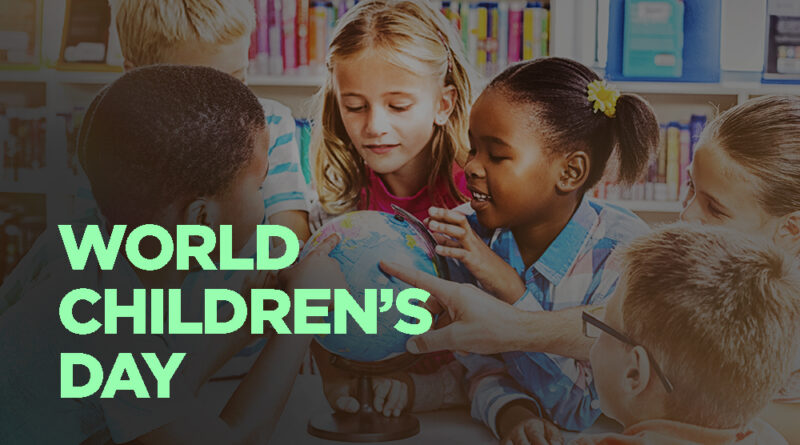Celebrate World Children’s Day with These 10 Latest Grants
There are 2.2 billion children in the world, and these children face many challenges in their day-to-day lives. Whether it is homelessness, hunger, lack of education, violence, or health issues, it is important to get the organizations and individuals the resources they need to contribute to the well-being of all children in need.
The United Nations has selected every Nov. 20 to be World or Universal Children’s Day. GrantWatch has a category solely for grants for children on its site. And in honor of World Children’s Day, GrantWatch is sharing 10 of the latest grants for children below.
Children’s Health
Children’s health is one of the main topics to focus on when trying to improve the overall well-being of children. While searching for grants, you can look under the following GrantWatch categories:
Health and Medical
- Grants to U.S. and territories community organizations, faith-based organizations, and tribes to provide services to children with special health care needs. The purpose of the program is to promote optimal health and well-being for CYSHCN and their families by advancing a well-functioning system of services.
Mental Health
- There are grants to U.S. public and private schools, LEAs, and charter school management companies to create mental health programs. Funding is to ensure children receive mental health services during and after the Coronavirus (COVID-19) pandemic. The funding will support the placement of licensed mental health professionals (referred to as Transitional Coaches) on school campuses.
Sports and Recreation
- Grants of up to $150 to U.S. families to increase access to youth sports programs. Funding is to provide scholarships for sports participation to children ages 4-18. The goal of the program is to encourage youth from income-restricted families to participate in multiple sports in order to develop well-rounded skills, physical conditioning, and diverse social connections.
Nutrition
- There are also grants to U.S. schools, government agencies, tribes, nonprofits, and agricultural producers for programs to increase access to local foods for eligible schools.
Children’s Education
GrantWatch has several grants for nonprofits, individuals, and small businesses to help fund programs and education for children. While searching for grants, you can look under the following GrantWatch categories:
Youth
- Opportunity for children around the world to participate in a contest that fosters creativity and entrepreneurship. Children ranging in ages from PreK to 12th grade may create their own invention, in or outside of school, to solve a problem in their community, school, or home. In addition, inventions may be physical or digital and must be presented in a video.
Research
- Additionally, there are grants to U.S. nonprofit organizations for research projects on topics related to children’s welfare and parenting. Funding is for original projects that have the potential to benefit infants and children. For example, focus areas include parenting practices and education, early childhood education and play, and early childhood welfare.
Education
- Grants of up to $10,000 to U.S. nonprofits and schools for programs that provide music education to children and youth. Applicants must submit a letter of inquiry prior to applying. Particular interest will go to programs serving disenfranchised groups, including those with disabilities or terminal illnesses; low-skilled, low-skilled, low-income, and low-education populations; and those in foster homes, shelters, hospitals, prisons, or other remote or isolated situations.
Elementary Education or Secondary Education
- In addition, there is an award of $1,000 to a U.S. or Canada female student in grades 5 through 8 for outstanding involvement in science. A strong connection to science is the main criterion for the selection of the recipient. Proposals will be evaluated by the quality of support materials, evidence of impact made by the student’s interest in science, and evidence of sustained accomplishments, progress, or interest in science.
Preschool
- In-kind grants of materials and resources to U.S. public elementary schools, Head Start programs, and preschools to implement a STEM learning program. Priority will go to schools that serve Title I students. Specifically, the purpose of the program is to assist students in feeling confident and capable with science and technology, and to develop their STEM Identity and Technology Fluency.
Libraries and Literacy
- Grants of up to $10,000 to U.S. and territories PreK-12 school libraries to provide books to disadvantaged youth. Funding is to ensure that school libraries are still offering children good books to read. Applications must also be connected to a specific project at a specific school.

